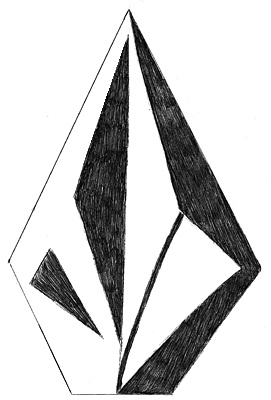All Nonfiction
- Bullying
- Books
- Academic
- Author Interviews
- Celebrity interviews
- College Articles
- College Essays
- Educator of the Year
- Heroes
- Interviews
- Memoir
- Personal Experience
- Sports
- Travel & Culture
All Opinions
- Bullying
- Current Events / Politics
- Discrimination
- Drugs / Alcohol / Smoking
- Entertainment / Celebrities
- Environment
- Love / Relationships
- Movies / Music / TV
- Pop Culture / Trends
- School / College
- Social Issues / Civics
- Spirituality / Religion
- Sports / Hobbies
All Hot Topics
- Bullying
- Community Service
- Environment
- Health
- Letters to the Editor
- Pride & Prejudice
- What Matters
- Back
Summer Guide
- Program Links
- Program Reviews
- Back
College Guide
- College Links
- College Reviews
- College Essays
- College Articles
- Back
Is Print Dead?
Is print dead? A question asked as soon as e-readers, such as the Kindle, Nook, and iPad, became popular and threatened the fate of printed publications. Why buy a book when you can download it onto a virtual reader? Why subscribe to a newspaper or magazine when you can get one easier and quicker on your iPad. E-readers already control the reading market and have put many print publication companies in a corner.
Print publications can’t exist in a world where e-readers exist. Its antiquity vs. technology; bringing a knife to a gun fight; technology always triumphs in the end. Print publications cannot co-exist because of what they literally are. Newspapers, magazines, and books are all printed on paper. The Go-Green movement has taken a toll on these companies by saying they waste paper and kill trees. The innovation of e-readers just made it easier for these green people to win the battle. E-readers are completely electronic, gaining large amounts of support from the green community and effectively hurting the print publication market leading to its downfall.
Another issue is the cost of manufacturing books, magazines, and newspapers. With the price of paper skyrocketing, print sources have less room for profit. This leads to print sources either raising their prices, which makes them lose customers, or they switch to electronic sources, in which they waste less money and they may gain more customers. There are also fewer companies putting advertisements in newspapers. Advertisements are the main revenues for newspapers and if companies stop asking for advertising space in the Personals then these newspapers will be in a lot of trouble.
Most people, however, don’t believe print is dead yet. The main reason for this idea is the same reason why some people won’t change to electric cars or the US won’t change to the metric system. This reason is that print publications are already established entities. Newspapers, magazines, and books may be on the downturn, but with some items such as textbooks, catalogs, and “artist books” (which are books that are written for their artistic styles rather than their plot, characters, or setting), the print media will stay alive. Also, with print sources changing to the internet, the revenues of these companies will increase, allowing them to continue to publish their print sources. Newspapers and magazines usually make people subscribe to their websites in order to read all of their articles. These subscriptions allow these companies to fund their newspapers and magazines, and the people who subscribe to the internet sources are more apt to buy the print sources because they already appreciate this source’s work.
So if the question, “Is print dead?,” is asked, one must answer that although it is on a downturn, print media will stick around for years to come.

Similar Articles
JOIN THE DISCUSSION
This article has 0 comments.
